
Know Your Leader: Keith Gran
A question and answer with Keith Gran, chief patient experience officer.

A question and answer with Keith Gran, chief patient experience officer.
April is Autism Awareness Month and there are a large number of patients treated at Michigan Medicine who have been diagnosed with autism spectrum disorder — a neurodevelopmental condition that delays or reverses development. Currently, it affects one in 68 children and is the fastest-growing developmental disability in the U.S.
Michigan Medicine staff members are constantly seeking creative ways to improve the patient experience by educating patients and families about health care and the different challenges they may face.
Peer support is rooted in the belief that no one needs to travel their health care journey alone. Indeed, when patients can meet with and learn from individuals who have gone through similar health challenges, it often makes their experience easier and healing process more effective.
When facing health care challenges, many patients and families turn to their faith for guidance and comfort.
The annual Evan Newport HOPE and JOY awards — honoring individuals and teams who have gone above and beyond in their daily work to embrace the principles of patient and family centered care — took place Wednesday afternoon in a packed Ford Auditorium.
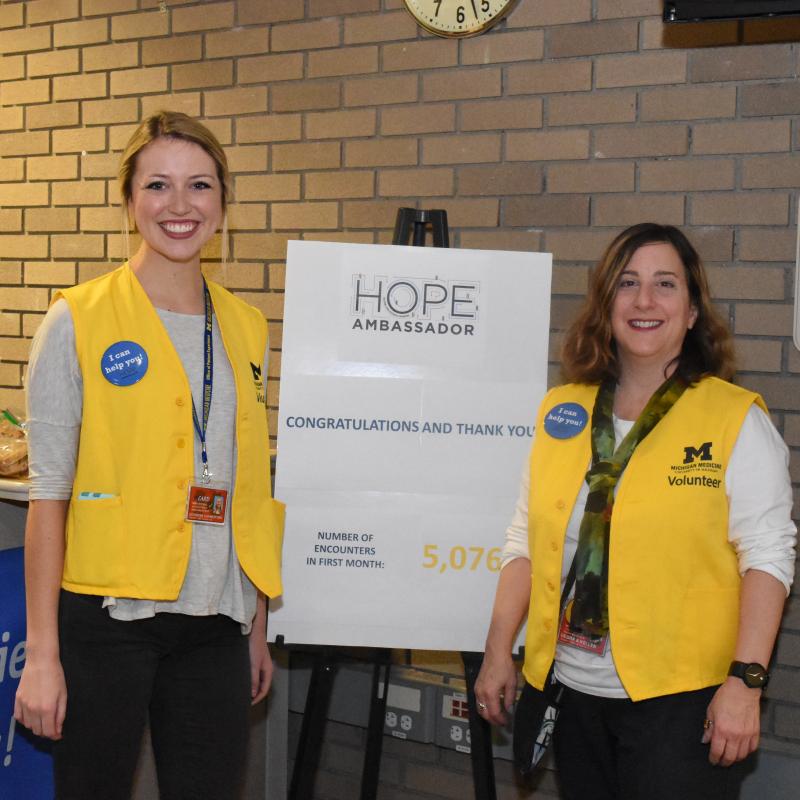
On the main academic medical center campus, a maze of buildings often makes it a challenge for patients and family members to navigate their way to an appointment or loved one. Fortunately, a new program was recently launched with the aim of making wayfinding easier for all.

This fall, Michigan Medicine will debut a new program, “No One Dies Alone” — or NODA — through the Department of Social Work. The program aims to provide compassionate companionship to patients at the end of life who have no friends or family available at their bedside.
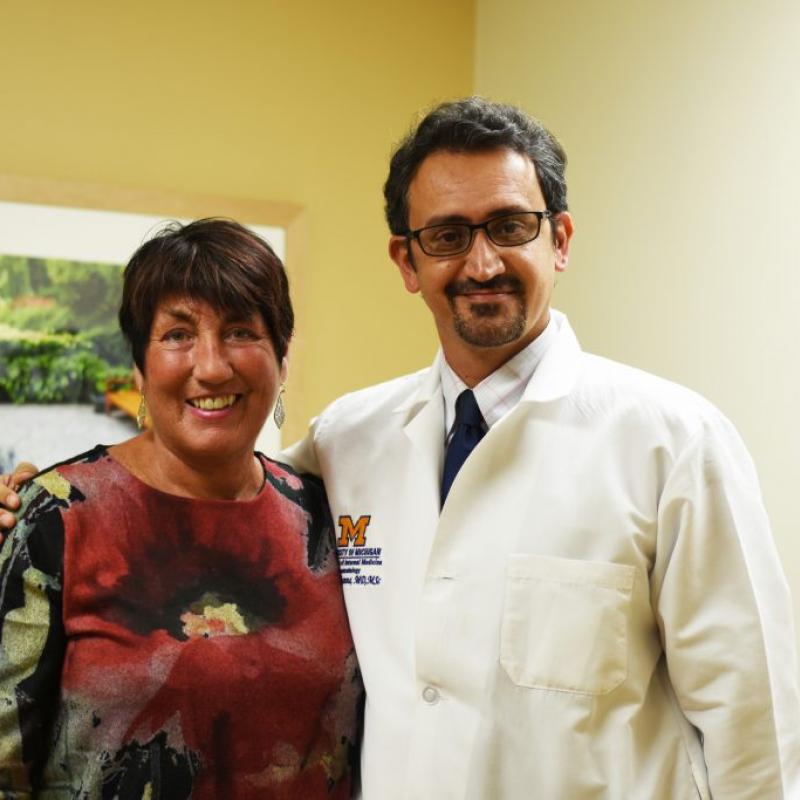
Frequently, Michigan Medicine receives letters, emails and other feedback from patients and family members showing their appreciation for the world-class services offered by faculty and staff. One recent letter from Michael Szekely praised the diligence and commitment of Dinesh Khanna, M.D., M.Sc., in the treatment of Michael’s wife, Cathy.
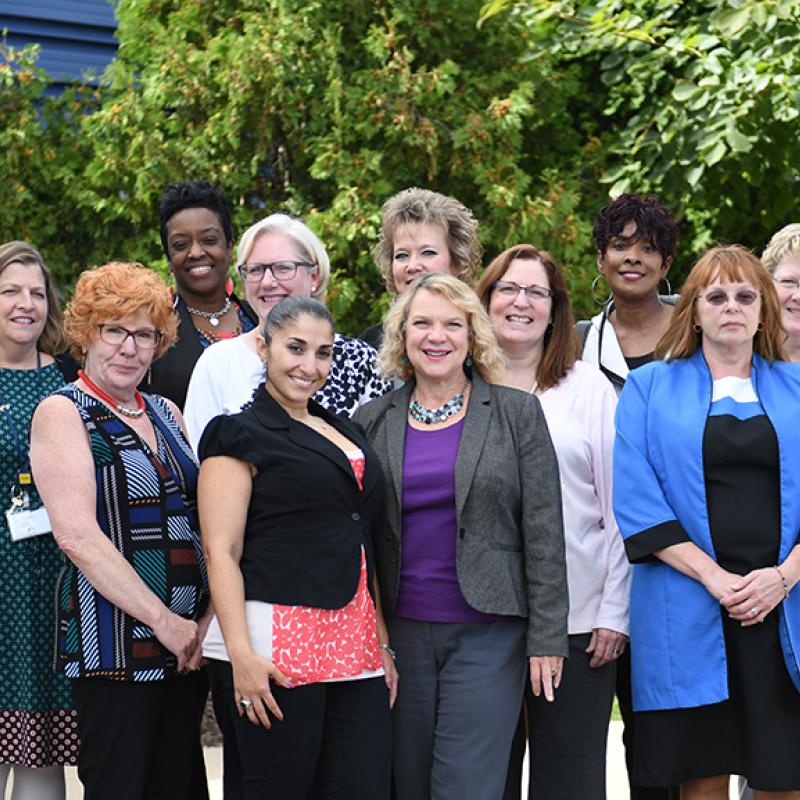
For Suzanne Thornton and Aunita Erskine, coming to work every day is a rewarding — and sometimes emotional — experience. “We are helping to alleviate so much anxiety for patients and their families,” said Suzanne, who has worked as a patient financial counselor with Michigan Medicine’s Patient Business Services for 20 years
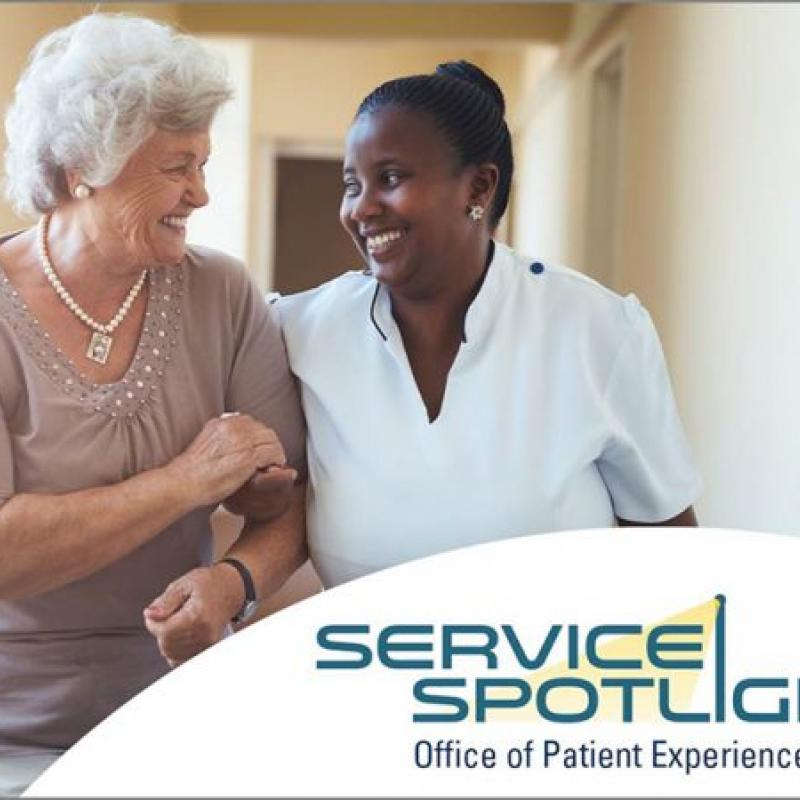
Often, patients coming to Michigan Medicine have a lot on their mind — from learning about their diagnosis to understanding how to implement their treatment plans.
Sometimes, it’s the little things — like offering a warm and friendly greeting — that go a long way when it comes to brightening up the day of a patient or family member.
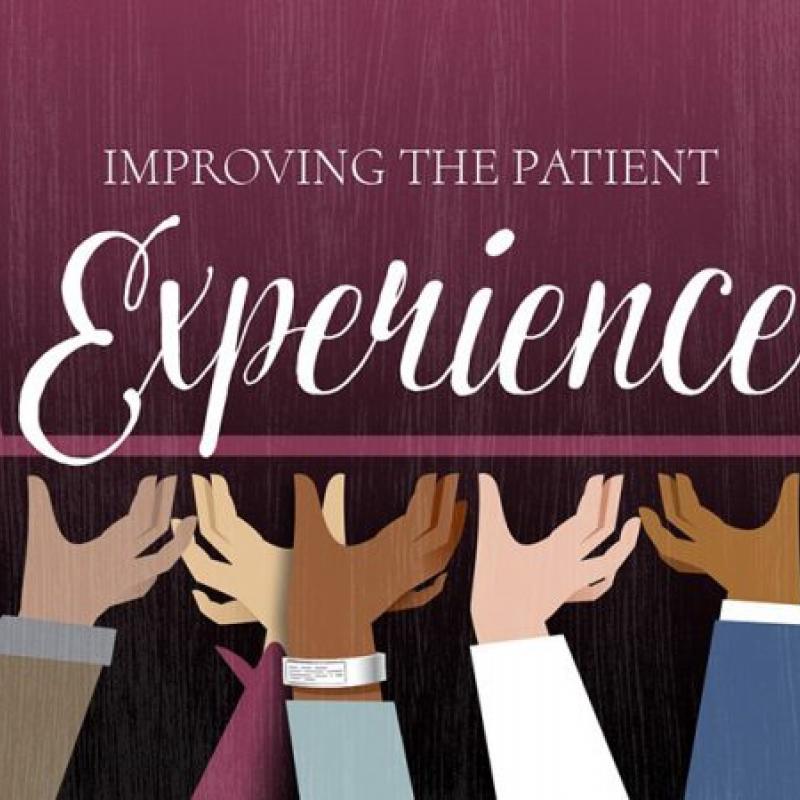
When a patient or loved one faces a cancer diagnosis, it can lead to a lot of questions. But did you know that Michigan Medicine has a dedicated team of experts just a phone call away to guide patients and families through all stages of the treatment process?
Needle pokes can be real “stick”lers! Receiving vaccinations, having blood drawn or an IV inserted, or experiencing any other pokes from a needle can cause anxiety or stress for some patients, especially the little ones (and let’s face it, it’s not fun for their parents either!).
Take it up a notch!
Spending long periods of time in a hospital bed can be frustrating for patients and let’s face it — there’s only so much reality television one can handle!
Michigan Medicine is proud to care for a diverse population of patients. Communication is the foundation for providing effective care, as it helps ensure a comprehensive assessment and determining a treatment plan that is patient and family centered.
When it comes to enhancing the patient experience, Michigan Medicine is serious about service. In fact, the organization recently introduced the newly formed Office of Patient Experience .